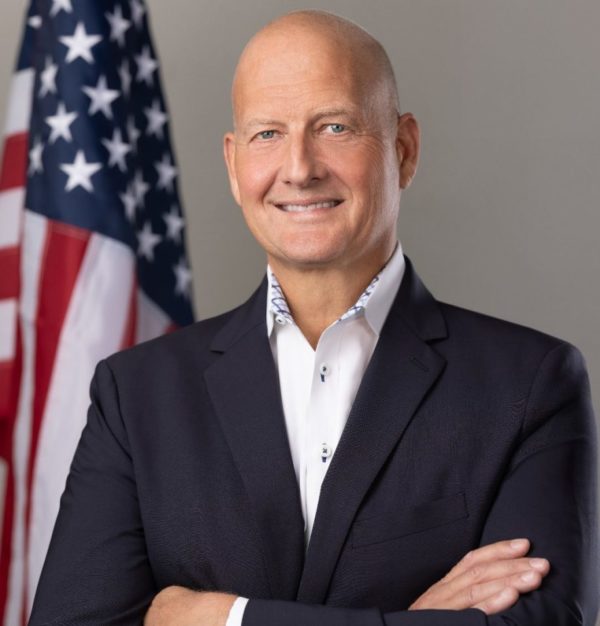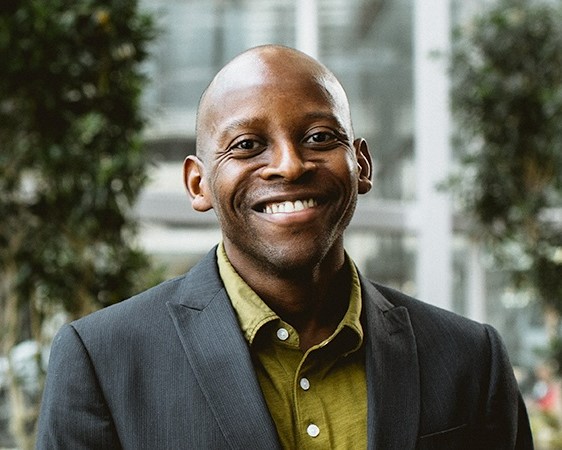
This editorial article is a part of Navigating a (Possible) Recession Month 2023 in Technical.ly’s editorial calendar.
As we eagerly await the numbers for Q4, we can more or less already predict that 2022 wasn’t able to compete with the $5 billion-strong 2021. And with recession and layoff rumors (and realities) swirling, it’s easy to think that last year was a thumbs-down in terms of venture capital and funding.
But 2022 was much more than that, according to several local experts. In fact, 2022 will likely be the second-largest year for VC funding ever (2021 being the largest). To be sure, it was filled with high-interest rates and geopolitical issues that impacted the broader economic landscape. Still, it was a pretty good time to be a founder. Consider that the first, second and third quarters all had their share of megarounds, with three raises of over $300 million.
2022: A year of resolution and progress
Marc Andersen, a partner and principal at financial giant EY, described 2022 as a year in which both founders and lenders got a better idea of what a post-COVID financial world would mean. He thinks that DC is in a better economic place than it was even six months ago.
“In 2022, one of the things that were positive, at least from my perspective, is: I feel like we had enough time go from the storm of the pandemic to this place where we’re coming out of it to really better understand job growth,” Andersen told Technical.ly.

Marc Andersen. (Courtesy photo)
Andersen added that prior headline-grabbing issues with supply chains started to sort themselves out in 2022. After 2020 and 2021’s months and months of delays and issues, the availability of goods and services has started to pick back up — even if they come at inflated rates, he said.
“We saw some disruptions around the supply chain with the pandemic that still haven’t fully resolved themselves,” Andersen said. “But I also think what people have done, which is interesting, and one of the lessons can be on the pandemic was de-risking the supply chain a little bit to upgrade our control over it.”
Another topic that nabbed much-overdue attention in the last few years — equitable support of Black founders — also progressed in 2022. For Black entrepreneurs, 1863 Ventures founder Melissa Bradley said, the past year meant continued opportunities for growth. Companies have also continued to support Black-owned businesses with grants, investments and distribution opportunities, she added.
“The increase in funding to Black general partners has allowed increased investment in Black founders,” Bradley said. “It has allowed for much-needed capital to support emerging startups — especially those led by Black women who started businesses faster than any other segment.”
Silicon Valley Bank VP Joseph Clark added that barriers to starting a company are still minimal and the local market is still relatively resilient.
All in all, according to interviewees, 2022 was a year of understanding what the next few years would bring, where we need to go from here, how to retain employees after the Great Recession and what funding moves make the most sense. While Andersen described it as a bumpy road, he does feel some stability after all the enormous changes since 2020.
So, what’s that mean for 2023?
Clark has a few ideas of what industries will climb in the new year. He sees crypto investments, which he said have run rampant, as continuing to go up, as well as fintech in general. Gaming, he added, will also be a hot market in the new year.
Still, given this year’s VC numbers, he does believe funding and company growth will continue to tighten and slow in 2023. What that means, though, is that the growth that does happen will be more meaningful and emphasize companies proving themselves before seeking funding. Besides, Andersen added, DC’s proximity to the federal government and its funding makes even the toughest day in DC a pretty good one.
As for next year’s funding climate, Clark anticipates more founders and lenders will be interested in debt as well as partnerships. He also expects increased government investment from such developments as the CHIPS Act and infrastructure funding.

Melissa Bradley. (Courtesy photo)
Bradley is less confident about capital availability: Though she thinks entrepreneurship will continue to grow as new programs are created, she doesn’t believe that founders will have the funds to back their ideas up.
“I do not believe the capital needed will be available,” Bradley said. “The economy, continued supply chain challenges and wage increases will be challenging for small businesses. I expect growth will slow down due to less capital in the first two quarters.”
She is, however, hopeful that the federal government can deploy massive amounts of capital via programs like the State Small Business Credit Initiative.
Both Clark and Andersen additionally expect investors to tighten their belts, meaning that funds won’t rain the way they did in 2021. Founders must therefore ensure they’re prepared not to get funding until 2024. Clark recommends they confirm they have enough to make it through 2024 and hone in on developing a good base product. He added that this environment will make investors more interested in equity percentages, for which founders must be confident in what they’re providing — and how much they’re willing to give up.
“Companies have to be really educated on the value of their product and how much they want to give away,” Clark said. “I don’t think it’s anything nefarious, it’s just that if I’m going to give you money in this environment where I need you to be tight until 2025 and you start making a profit hopefully earlier than that, I want to have more skin in the game.”

Joseph Clark. (Courtesy photo)
So, founders have to make their companies airtight to stand out and get the funding they want. Clark suggests checking in and taking a pulse on how much people want the product you’re selling, as well as understanding competitors’ offerings. He also recommends zeroing in on how much funding you seek — and who you want it from.
“A sharper focus on who you want money from and why they are the best person to give you money is more important than ever,” Clark said.
With expected economic uncertainty, Bradley recommends founders regularly take stock of their finances and secure a line of credit at the lowest rate possible. She also advocates keeping a close eye on company culture and checking in with staff and team members, as she expects a lack of funds will mean fewer wage bumps and make filling key roles more difficult.
With that in mind, she noted that it’s always important to remember that there’s plenty of time for growth, and founders shouldn’t be too hard on themselves during a hard economic time.
“I recommend founders take time to be strategic about their business as well as take time to care for themselves,” Bradley said. “Entrepreneurship is a journey, not a marathon.”
While the beginning of 2023 might be a bit bumpy, Andersen expects things to mellow out by mid-year and move upward at the end. All of that together, he and Clark both expect, will make for a strong 2024.
“I’m really bullish on 2023…We’re in a better place today than we were six months ago, 12 months ago,” Andersen said.
Join the conversation!
Find news, events, jobs and people who share your interests on Technical.ly's open community Slack

DC daily roundup: Appian's new AI tools; Foxtrot stores abruptly shutter; Sublime Security raises $20M

DC daily roundup: Startup founders offer praise; Howard U breaks application record; NavalX gets new director

DC daily roundup: Washington Post's AI collab; a greentech glossary; Halcyon's debut Climate Fellowship cohort


